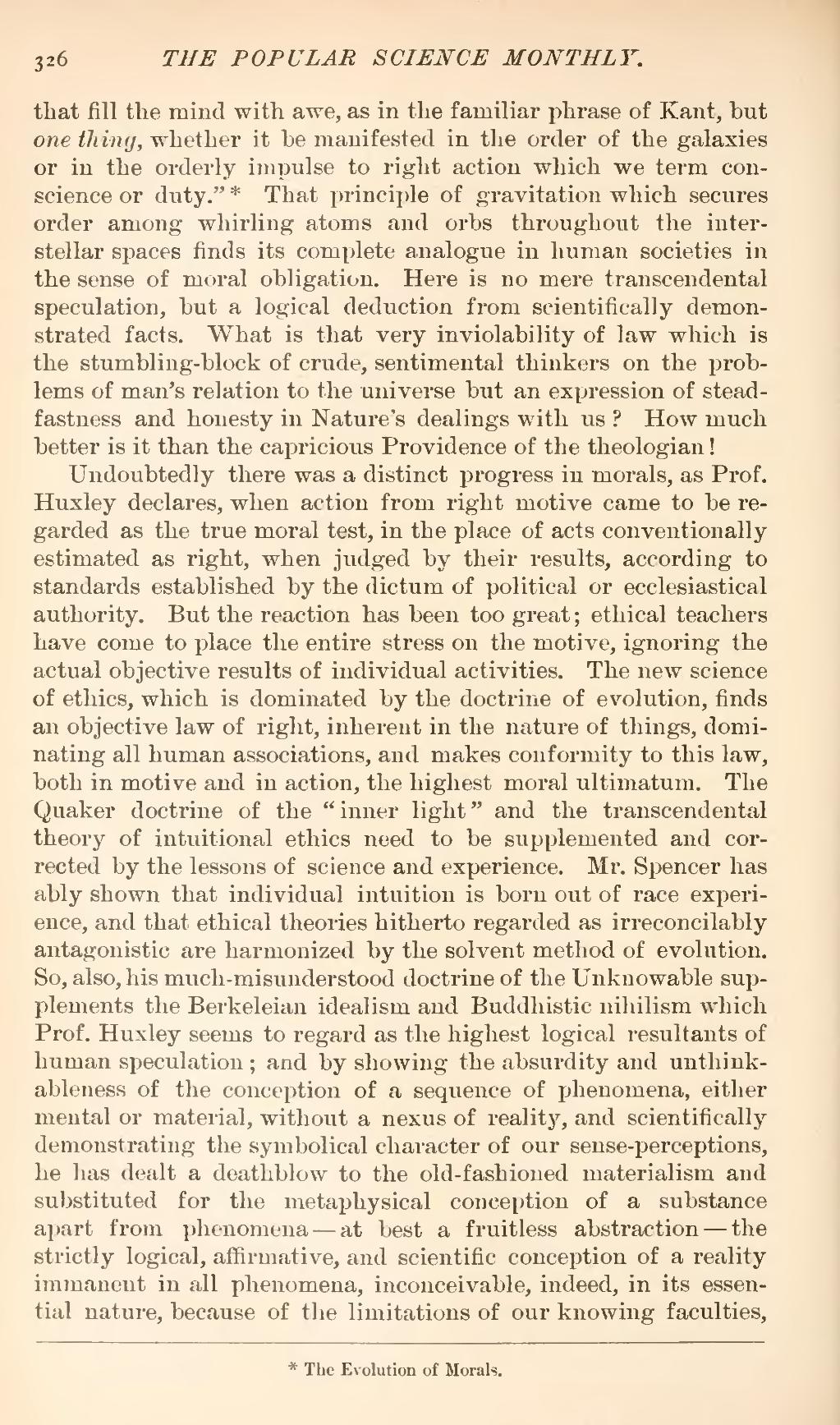that fill the mind with awe, as in the familiar phrase of Kant, but one thing, whether it be manifested in the order of the galaxies or in the orderly impulse to right action which we term conscience or duty."[1] That principle of gravitation which secures order among whirling atoms and orbs throughout the interstellar spaces finds its complete analogue in human societies in the sense of moral obligation. Here is no mere transcendental speculation, but a logical deduction from scientifically demonstrated facts. What is that very inviolability of law which is the stumbling-block of crude, sentimental thinkers on the problems of man's relation to the universe but an expression of steadfastness and honesty in Nature's dealings with us? How much better is it than the capricious Providence of the theologian!
Undoubtedly there was a distinct progress in morals, as Prof. Huxley declares, when action from right motive came to be regarded as the true moral test, in the place of acts conventionally estimated as right, when judged by their results, according to standards established by the dictum of political or ecclesiastical authority. But the reaction has been too great; ethical teachers have come to place the entire stress on the motive, ignoring the actual objective results of individual activities. The new science of ethics, which is dominated by the doctrine of evolution, finds an objective law of right, inherent in the nature of things, dominating all human associations, and makes conformity to this law, both in motive and in action, the highest moral ultimatum. The Quaker doctrine of the "inner light" and the transcendental theory of intuitional ethics need to be supplemented and corrected by the lessons of science and experience. Mr. Spencer has ably shown that individual intuition is born out of race experience, and that ethical theories hitherto regarded as irreconcilably antagonistic are harmonized by the solvent method of evolution. So, also, his much-misunderstood doctrine of the Unknowable supplements the Berkeleian idealism and Buddhistic nihilism which Prof. Huxley seems to regard as the highest logical resultants of human speculation; and by showing the absurdity and unthinkableness of the conception of a sequence of phenomena, either mental or material, without a nexus of reality, and scientifically demonstrating the symbolical character of our sense-perceptions, he has dealt a deathblow to the old-fashioned materialism and substituted for the metaphysical conception of a substance apart from phenomena—at best a fruitless abstraction—the strictly logical, affirmative, and scientific conception of a reality immanent in all phenomena, inconceivable, indeed, in its essential nature, because of the limitations of our knowing faculties,
- ↑ The Evolution of Morals.
